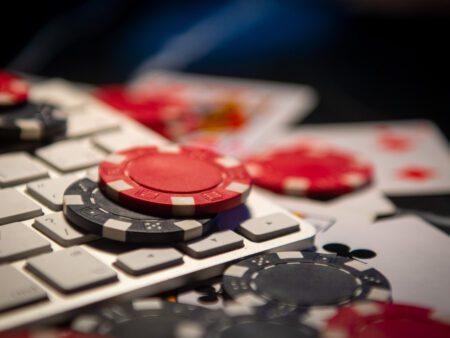Discover how to identify tendencies in poker players and use them to your advantage. Learn strategies for exploiting weaknesses and using psychology to gain an edge.
Exploiting Poker Tendencies: How to Identify Weaknesses
Are you tired of losing at poker? Do you want to turn the tables and start winning consistently? Understanding your opponents’ weaknesses and exploiting them is the key to success in poker. In this article, we will discuss how to identify tendencies in poker players and use them to your advantage.
Reading Poker Players
One of the most important skills in poker is the ability to read your opponents. By observing their actions, behaviors, and betting patterns, you can gain valuable insights into their playing style and the strength of their hand.
Here are some tendencies to look out for:
- Tight or Loose: Pay attention to how often an opponent is playing hands. Tight players tend to be more selective and cautious with their hands, while loose players play a wider range of hands.
- Passive or Aggressive: Observe how players bet and raise. Passive players are more likely to call and check, while aggressive players tend to bet and raise more frequently.
- Bluffing: Look for signs of bluffing, such as hesitation, sudden aggression, or consistent betting despite unfavorable cards on the board.
- Emotional Tells: Watch for any emotional or physical cues that may indicate the strength or weakness of a player’s hand. For example, nervousness, excitement, or changes in body language.
Exploiting Weaknesses
Once you have identified your opponents’ tendencies, it’s time to exploit their weaknesses. Here are some strategies you can use:
- Exploiting Tight Players: Tight players are more likely to fold to aggressive bets. Take advantage of this by bluffing and making larger bets when you have a strong hand. They are also more likely to play predictable hands, so be cautious when they show aggression.
- Exploiting Loose Players: Loose players are more likely to call bets with weaker hands. Take advantage of this by betting larger amounts when you have a strong hand. However, be cautious of their unpredictability and don’t be afraid to fold if they suddenly show aggression.
- Exploiting Passive Players: Passive players are less likely to bet or raise, even with strong hands. Take advantage of this by making larger bets and raising their bets when you have a strong hand. This will force them to make difficult decisions and potentially fold.
- Exploiting Aggressive Players: Aggressive players tend to bluff more frequently. Take advantage of this by calling their bets with strong hands and letting them do the betting. If they continue to bet aggressively, consider re-raising or going all-in to put them in a tough spot.
Mind Games and Psychology
In addition to exploiting your opponents’ tendencies, mind games and psychology can play a significant role in poker. By using psychological tactics such as intimidation, manipulation, and deception, you can influence your opponents’ decisions and gain an advantage.
Here are some psychological strategies to consider:
- The Reverse Tell: Intentionally display a behavior that contradicts the strength of your hand. For example, acting confident when you have a weak hand or nervous when you have a strong hand. This can confuse your opponents and lead them to make incorrect assumptions.
- The Steal: Use aggressive betting and raising to steal pots even when you have weak or mediocre hands. This can make your opponents doubt the strength of their own hands and fold.
- Position Play: Take advantage of your position at the table by playing more aggressively when you are in late position. This allows you to gain more information about your opponents’ actions before making your own decisions.
Conclusion
In conclusion, understanding your opponents’ tendencies and exploiting their weaknesses is crucial for success in poker. By reading their playing style, observing their behaviors, and using psychological strategies, you can gain a significant advantage over your opponents. Remember to always stay aware of your own tendencies and adapt your strategies accordingly. Good luck at the tables!










